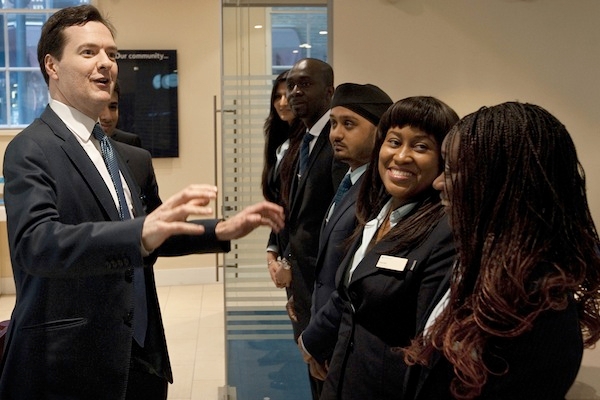From the moment the Queen uttered the words, ‘Good evening, Mr. Bond,’ Britain was caught in a two-week Olympic bubble of sporting and national pride. I’m sorry to kill the buzz, but while Mo Farah was hurtling at full speed towards the finishing line, Britain’s economy was crawling on its knees.
We’ve seen a shock rise in inflation. We’ve seen warnings from the TUC that the job outlook for the young is its toughest since 1994. And, with Britain now being the only major economy apart from Italy to stay in recession, we’ve been dubbed the ‘sick man of Europe’.
If Britain is going to perform as well as its athletes, this government needs to stop acting as a kind of feudal landlord that takes our money, no questions asked. It needs to stop patting us on the head while telling us that everything will be okay. It won’t: if we keep doing what we’ve done, we’ll get more of the same — sluggish growth and high youth unemployment. It’s time to rewire the entire system and put power in the hands of this country’s entrepreneurs.
We can start by cutting the oppressive red tape that is choking the UK’s 4.8 million SMEs. The government could remove statutory PAYE and National Insurance contributions for companies under three years’ old. And it could abolish IR35, the punitive and complicated tax code that is designed to catch ‘disguised employees’.
The government ought to release microfirms (companies employing fewer than ten staff) from 75 per cent of employment regulation. It’s absurd that a tiny cake-making business with three hires has to comply with the same rules as a manufacturing firm with 100 employees.
I argue in my book Welcome to Entrepreneur Country that the government needs to lift the tax burden from the ‘Davids’ — the vital six per cent of small but high-growth businesses currently creating 54 per cent of all new jobs — and enforce the tax code on the ‘Goliaths’, the large corporates. Take Google, for example. This country’s weak tax laws meant that the online search giant paid just £8m of corporation tax in Britain last year – despite making more than £6bn in revenues in this country in the six years to 2010. How does that make sense? Why are our small businesses subsidising big businesses?
The Davos vision of the world is that the people who count are at the top of the pyramid — the country leaders, the corporate big shots. The assumption is that the people at the bottom have no clue how to take care of themselves or design their own futures. I couldn’t disagree more. It’s the world of the SME, the sole trader, the individual capitalist that will drive economic growth. Very few people under the age of 30 believe they work for someone else; they all think of themselves as their own brand, they all take a dim view of what the government is providing in terms of public services and they all want to set their own rules. It’s time to hand the baton to the country’s entrepreneurs — and let them run with it.
Julie Meyer is the founder of Ariadne Capital and the author of Welcome to Entrepreneur Country: What it is, How to find it, Why you should go there, published by Constable Robinson.






Comments